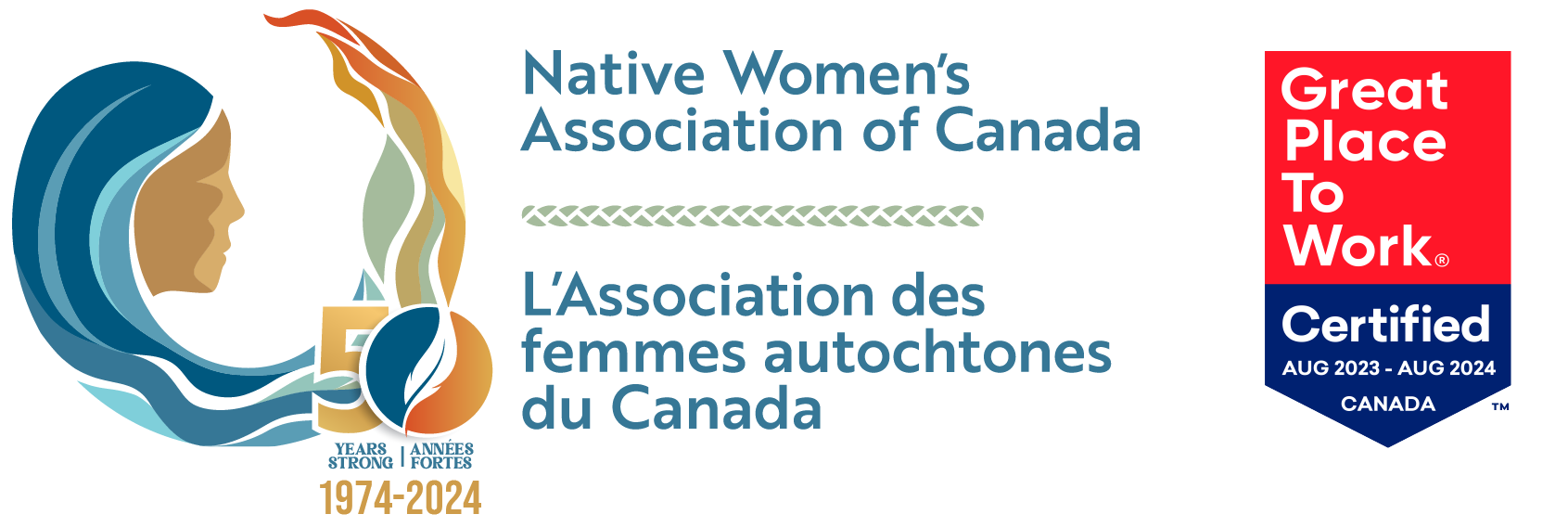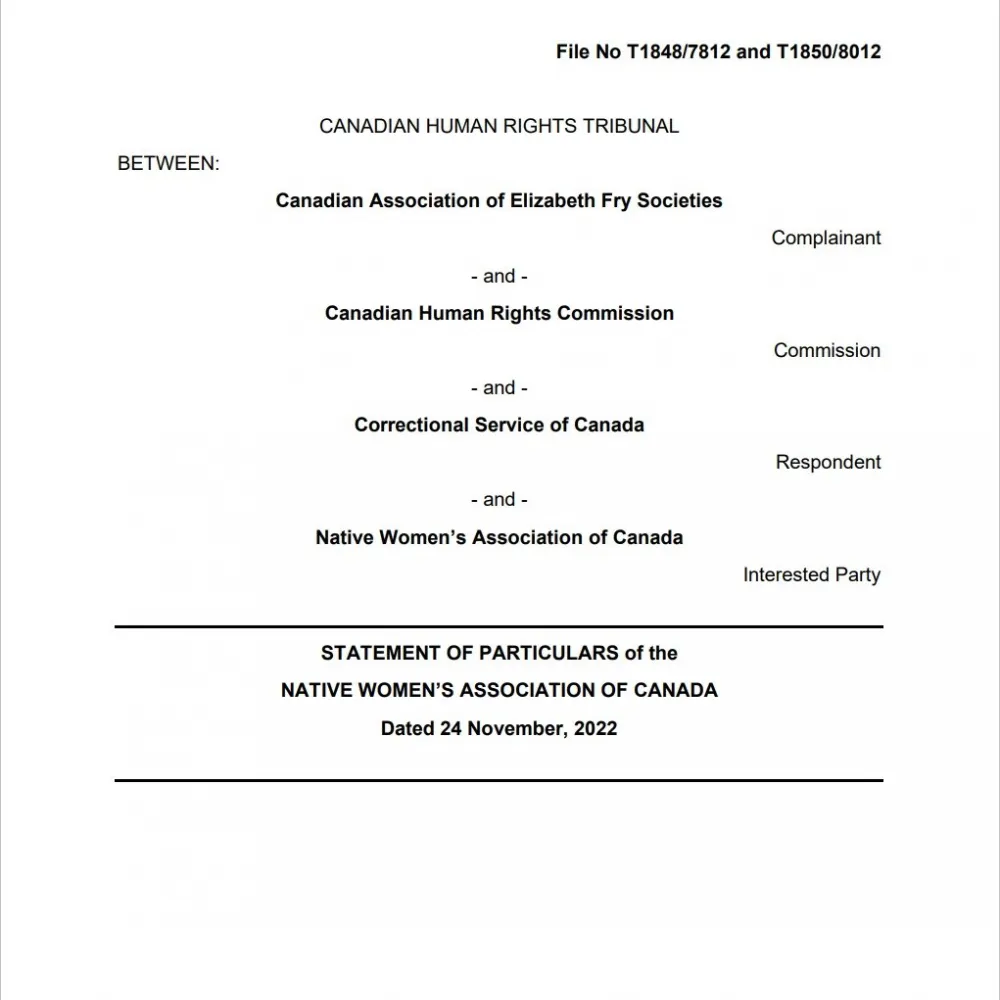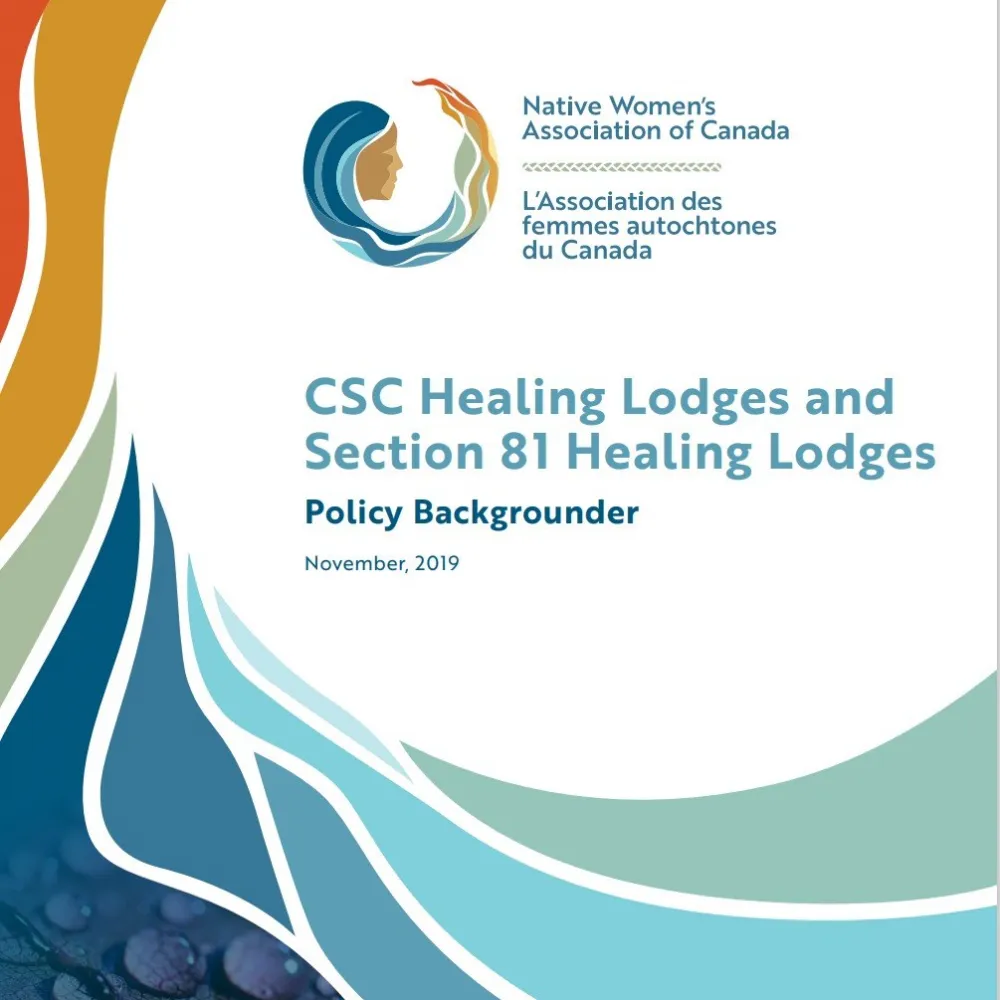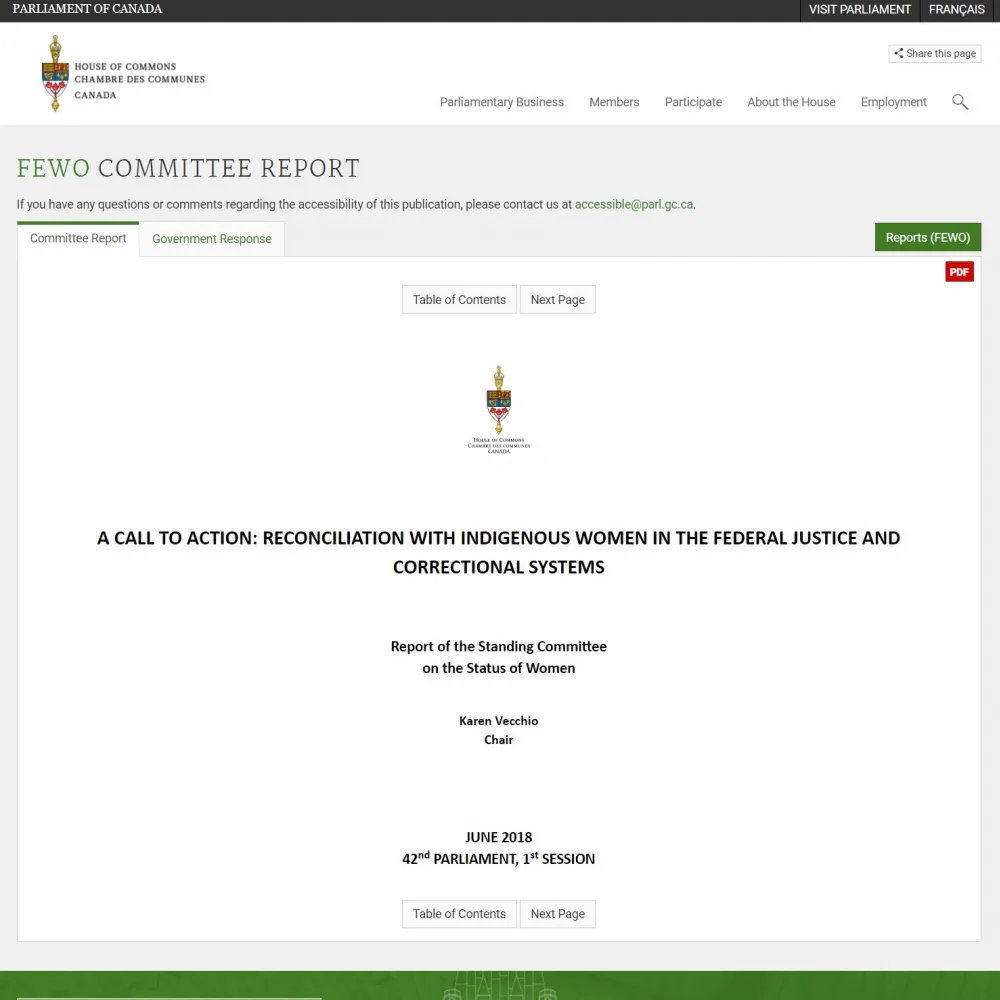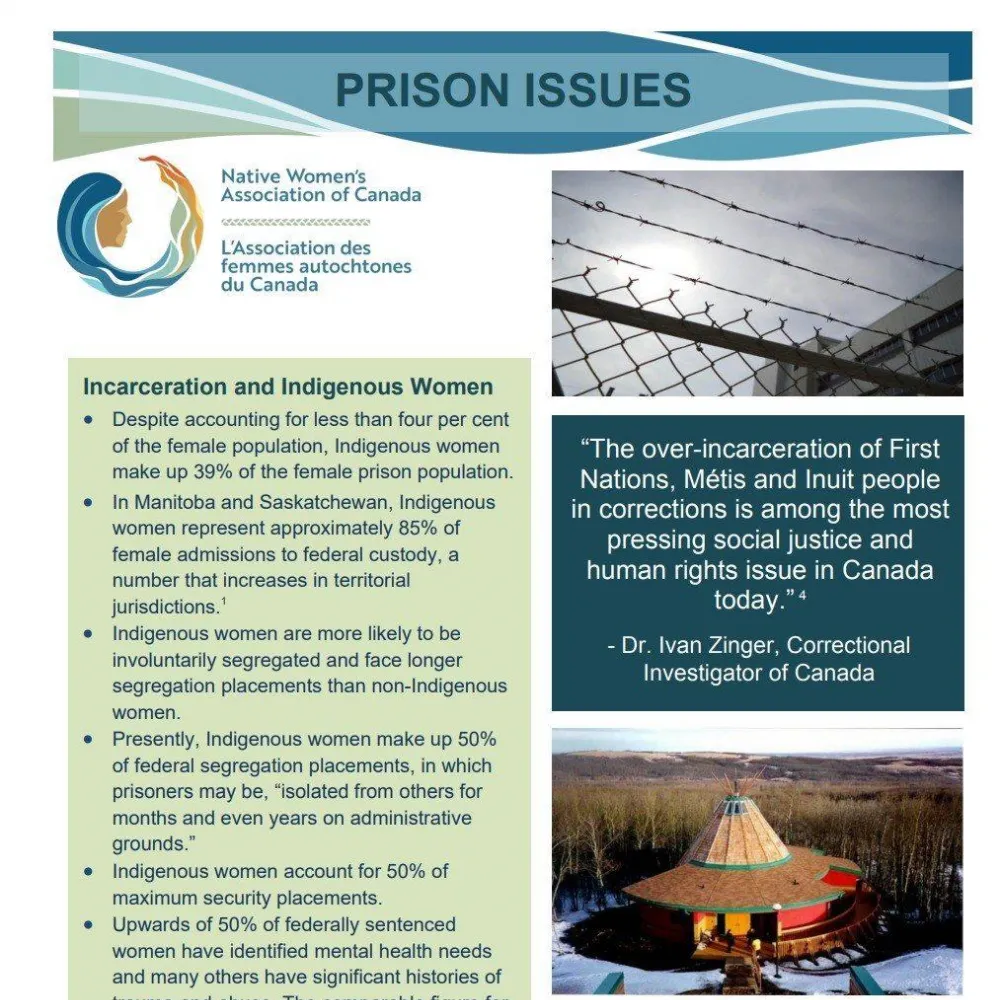Summary
NWAC has consistently advocated for the rights of victimized, marginalized, and criminalized Indigenous women in Canada. Historically, the experience of incarceration and institutional violence has been closely connected to colonial policies, which continue to have a profound impact on Indigenous women today.
Indigenous Women make up more than half of the federal prison population and made up nearly 70% of maximum-security placements during April 2018 to December 2021.2 Despite these staggering numbers, the Canadian justice system has not responded to the unique circumstances faced by Indigenous women, and instead prioritize the use of incarceration over proven community-based alternatives to rehabilitation.
Attempts to fix discrepancies in the Canadian justice system have seen lackluster results. The Corrections and Conditional Release Act and Gladue [1999] Supreme Court decision—which intended to correct over-representation of Indigenous people in federal prisons through collaboration with Indigenous communities to provide specialized services for Indigenous prisoners—has shown little improvement. NWAC believes a restorative justice approach should be adopted to allow convicted Indigenous people to stay in their communities to rehabilitate.
